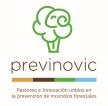ENCINA-SMS Operational Group: Use of new communications and innovation in Andalusia - Sierra Morena de Sevilla
- Type Operational group
- Status In progress
- Execution 2022 -2024
- Assigned Budget 193.149,00 €
- Scope Autonómico
- Autonomous community Andalucía
- Main source of financing CAP 2023-2027
- Project website ENCIMA-SMS
The ENCINA-SMS project aims to test a technological infrastructure under operational conditions for remote management of dehesa farms and improve their working conditions.
Some functionalities that could be tested in relation to livestock management: feeding and watering as needed, feeding monitoring, identification of animals with fever, exact dosage of medications, control of animal welfare parameters in stables, counting: - Management of water pipes: activation and deactivation of pumps in wells, detection of leaks in tanks and pipes, efficient refilling of drinkers, etc. - Optimization of feeders and drinkers: efficient replenishment, consumption management, control of health incidents due to deterioration of feed, discrimination of user animals, etc. - Mechanisms for food safety: traceability, early detection of sick animals, controls at source, etc. - Control of animal welfare parameters in stables: CO2, temperature, humidity, etc. - Control of supplies (mainly feed) and animal loads by weighing vehicles and trucks.
Regarding complementary activities, mechanisms could be tested for access control, automatic gate opening, alerts for potential weather damage, fire prevention, identification of machinery conditions, and securing drivers working alone.
Andalusia, considered one of Europe's breadbaskets as the largest agri-food producer, contributes around 10% of the region's Gross Added Value and employment. Given its contribution to maintaining rural areas and preserving the environment and natural spaces, the agricultural sector also contributes to territorial integration and population balance, preventing the depopulation of rural areas. Despite the wealth and employment it generates, this sector is threatened by globalization, price fluctuations, and economic crises. The scarcity of quality job opportunities in agricultural settings is compounded by insufficient generational renewal and a low female representation.
The main causes of demotivation toward activities in the primary sector stem from the physical demands of the tasks, difficulties in balancing work and family life, and the limited social recognition of those involved in the sector. As in other sectors, the survival of those involved in the agricultural sector largely depends on the incorporation of digital and technological means that increase productivity and meet the sustainability criteria that society demands.
The ultimate goal of ENCINA–SMS is to facilitate the management of extensive farms to free people from routine and unsatisfactory tasks, ensuring that they don't have to go to work every single day of their lives.
Based on real needs and challenges in managing a typical farm (pig, cattle, and sheep), technological development will be undertaken to automate activities performed in person, meeting health and quality requirements. Once its reliability and degree of contribution to efficiency objectives have been tested, the functionalities will be integrated into a user-friendly management platform to allow device control and decision-making without the need for technological knowledge. Finally, the platform will be documented for dissemination.
The objective is to improve profitability and working conditions on dehesa livestock farms by automating activities typically performed on-site, using technologies such as 5G (Nb-IoT variant), artificial intelligence, and big data. A pilot project will be implemented on two farms. The system would be managed without the need for technological knowledge. Existing technology (developed for Smart City or Industry 4.0) will be adapted to the harsh environmental and coverage conditions of dehesa farms, all without risking environmental impact on the park's protected environment.
- Coordinator/entity name: Joaquín Fernández Ronquillo
- Postal address: El Real de la Jara (Seville)
- Coordinator/entity email: hermanosfernandezronquillo@gmail.com
- Telephone: 609703863
The ENCINA-SMS project aims to test an innovative development under operational conditions, resulting in a technological infrastructure for remote management of dehesa farms.
The project's sponsors are working on the idea that the introduction of technology in the field can create more attractive working conditions for young people, who would more readily assume the generational shift. It would also be easier for women to take on the challenge, offering everyone a less physically demanding job, greater opportunities for work-life balance, and greater social recognition for the profession.
Additionally, the increase in technological requirements could expand the scope of work for traditional professions related to installations in general and also attract talent from other sectors, thus generating an ecosystem of quality indirect jobs that would lead to a revival of many rural areas. Beyond the technical aspect, ENCINA-SMS, as a driving force behind others, aims to achieve a high social impact, primarily among young people and women: Promoting generational renewal, New spaces for the incorporation of women, Additional opportunities for digitalization, Generation of high-value positions, Possibilities for local development of auxiliary services, Attracting talent to rural areas, Repopulating the territory to overcome the fear of a deserted Spain.
- Joaquín Fernández Ronquillo
- ASOCIACIÓN INVESTIGACIÓN Y COOPERACIÓN INDUSTRIAL ANDALUCÍA (AICIA) (soporte@aicia.es)
- AYUNTAMIENTO DE EL REAL DE LA JARA (laer@aytoelrealdelajara.es)
- ASOCIACIÓN GRUPO DESARROLLO RURAL SIERRA MORENA SEVILLA (adr@sierramorenasevilla.org
- Joaquín Fernández Ronquillo







